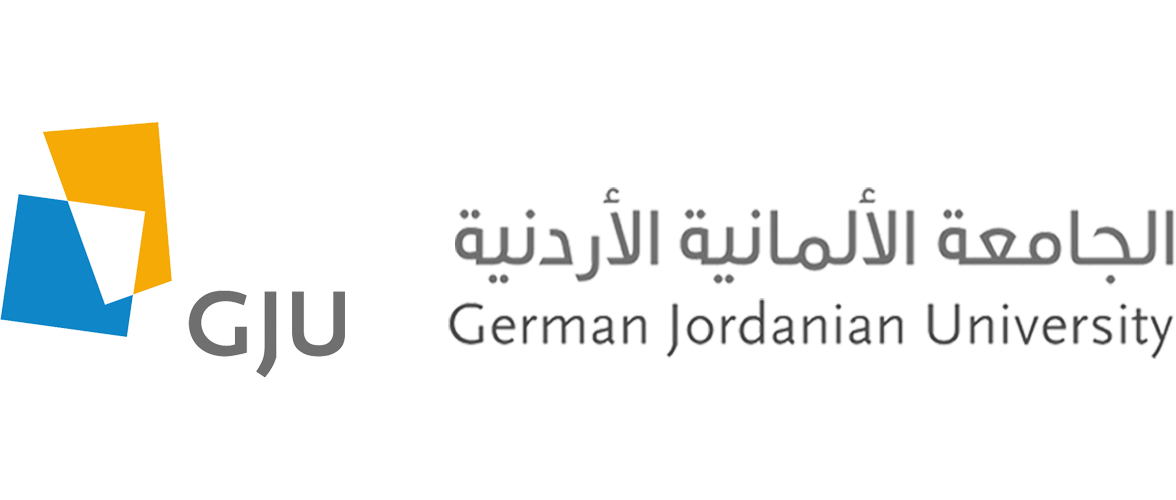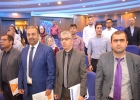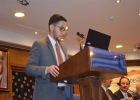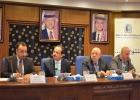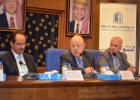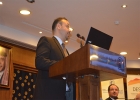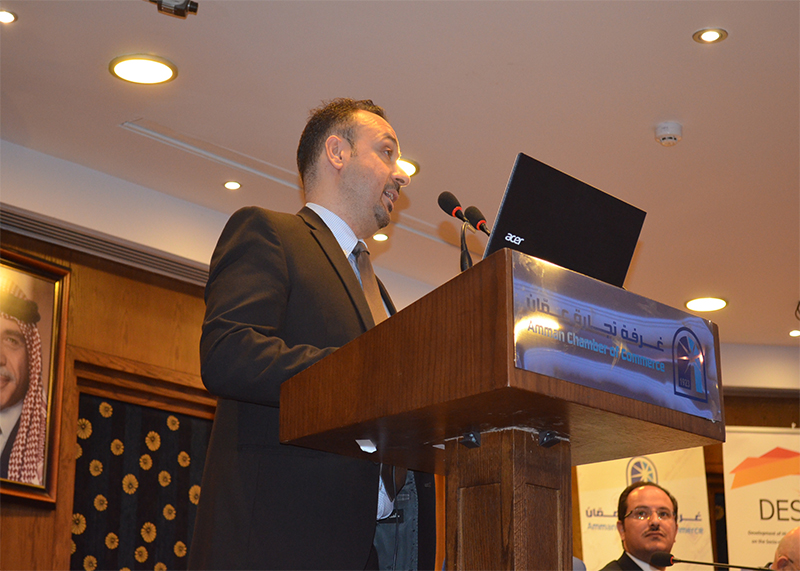Amman- 16 May 2017
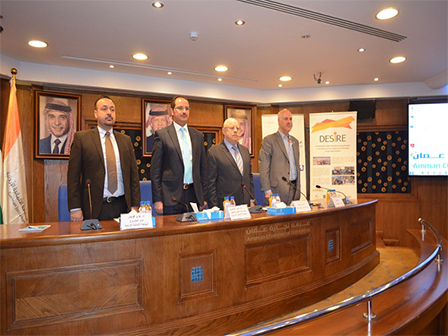
On Monday 15th of May 2017, German Jordanian University (GJU) organized a workshop in cooperation with Amman Chamber of Commerce about Socio-Economic Impacts of Renewable Energy and Energy Efficiency in Jordan.
The workshop was organized by the School of Applied Technical Science within DESIRE project, Co-funded by the Erasmus+ program of the European Union to develop higher education teaching modules on the Socio- Economic Impacts of the Renewable Energy Implementation
The Dean of School of Applied Technical Sciences, Prof. Ala’ Aldeen Al-Halhouli stressed the importance of the renewable energy subject as a top priority in Jordan, indicating that the theme of the workshop comes in line with the university’s vision and mission of the importance of applied sciences, adding that communicating with industrial and commercial sectors is essential to produce a qualified competitive forces capable of serving the needs of our beloved country.
Dr Halhouli explained that this project is one of DESIRE’s projects that is managed by GJU and aims to develop teaching modules for Bachelor and Master programs on the Socio- Economic Impacts of the Renewable Energy Implementation, and Energy Efficiency, also to raise awareness, conduct trainings and workshops for academics, students and researchers in the field, with the collaboration of partners from Germany, Italy, Cyprus, Egypt and Syria.
First Vice Chairman Mr. Ghassan Kherfan highlighted the role of Amman Chamber of Commerce Academy in providing qualified and innovative training, and its efforts in being an effective partner towards economic development, considering this workshop as an outcome of the relationship between the Chamber and GJU.
On another hand Project Coordinator Dr. Louy Qoaider, presented an introduction to DESIRE Project clarifying its goals and the socio- economic impact on society such as creating jobs, increase the international export and reduce fuel import, illustrating the importance of renewable energy in achieving growth and sustainability.
The workshop included three topics of discussion on current situation of renewable energy in Jordan and MENA region, and renewable energy regulation framework in Jordan, while the second topic included the organization’s support and their contributions in the field, and the third one discussed the future of renewable energy in Jordan by 2030 with the participation of academic and market.
During the workshop films on successful renewable energy experience in Jordan were showed, and a research paper was provided by the Head of Industrial Link Committee at GJU Dr. Ziad Abu Al-Rub about University industry collaboration: a case study from the German Jordanian university.
Energy Service Companies (ESCOs), Universities, Amman chamber of industry (ACI), Ministries, International organizations, Nongovernmental Organizations (NGOs), and interested individuals, participated in the workshop.
